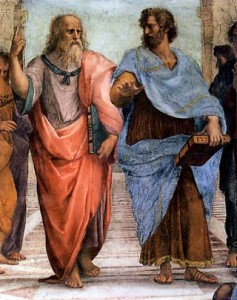Substance can be most directly defined as what something is. Man is a substance, a horse is a substance and a rock is a substance. Going in-depth of the substance one is introduced to a secondary substance which is when something is in essence.
For example, man has certain attributes to accentuate a man’s individuality. To say a man is just a man is very general and giving these attributes makes the simple man an individual man. ‘Man’ is a common noun, so it does not refer to a property of the subject but rather the class of which the subject is a member.
That which is said of but not in a subject is the predicate term in a subject-predicate sentence that employs the ‘is’ of identity, rather than of predication. The negative criterion (“neither in a subject nor said of a subject”) of the categories tells us only which things are substances.
We can know that a particular something is a substance but we have to define what makes this a substance. A substance can receive contraries that alter substances to change, move, grow etc. Individual substances, apart from their accidentals/qualities are simple in essence.
Aristotle’s view on the nature of reality is “robustly down-to-earth” in comparison to Plato’s. Plato believed that we are an imperfect model of the perfect form: God. Instead of analyzing the universal structures from top to bottom like Plato, Aristotle analyses them from bottom to top. He believes that each person has particular characteristics that make them who they are and there never is a standard of what they should become.
In a religious sense, one would want to develop themselves to be morally just, to have a respectable soul. Aristotle challenged Plato’s beliefs because he was unable to comprehend how every man was placed on the same level below the ideally perfect but have different physical and mental characteristics. Though the theory is meant to establish concrete standards for the knowledge of reality, Aristotle considers it fraught with inconsistencies and believes that the concept of reality depends upon all forms’ connection to other elements.

